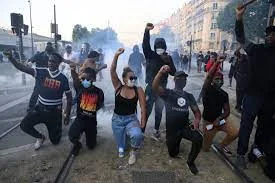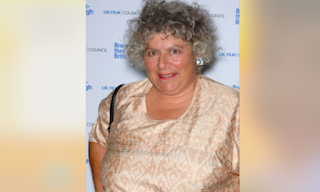An eighth British plane leaves for Ukraine carrying anti-tank weapons
An eighth British military cargo plane leaves Brize Norton Air Base loaded with weapons for Kiev, according to informed sources. The British Deputy Defense Minister announced on Wednesday that "the country has delivered to Ukraine several thousand light anti-tank missiles."
On Wednesday, an eighth British military cargo plane left the "Breeze Norton" air base loaded with weapons for Kiev, according to informed sources.
And last week, the North Atlantic Treaty Organization (NATO) held a meeting to discuss the Ukrainian crisis while Russia was massing about 100,000 soldiers with tanks and other heavy weapons near the eastern border of Ukraine.
Earlier on Wednesday, British Deputy Defense Secretary Ben Wallace announced that his country had delivered to Ukraine several thousand light anti-tank missiles.
"We have sent thousands of light anti-tank missiles to the Ukrainian armed forces," he added in a radio interview. He described the Ukrainian people as a sovereign people ready to defend every inch of their land.
On Monday, the British Defense Secretary announced that his country would "provide Ukraine with anti-tank systems for self-defense." "They are not considered strategic weapons and do not represent any danger to Russia, and are intended for defense," he added.
France in Black An investigation exposes French racism against Africans
The documentary "France in Black", which was broadcast by French Channel 2, exposes the suffering of black-skinned people in France from the racism and humiliation imposed on them.
The documentary "France in Black", which was broadcast by French Channel Two on Tuesday night, reveals the historical suffering experienced by people of African descent on a daily basis in the country. They are haunted by racist words and attacks since childhood, and stereotyped images in the public media as well as before the law.
The film conveys this reality through lived life testimonies of the victims of this daily violence, from the famous French arena or from the public, to confirm that the phenomenon exists and has its historical roots that permeate the collective memory through France’s role in the slave trade as well as its colonial crimes.
This comes in a clear response to the right, which denies the existence of this phenomenon, its broadness and its rooting in the French public sphere, considering the struggle of this section of the population as imported from other societies.
Black doll, white doll
Racism and defamation of skin color are the most prominent feature of the life of the people of African origin in France, as shown in the "France 2" documentary, where this suffering has been accompanying them since their early childhood.
In the documentary, Miley (9 years old), who was born to parents of African descent, relays her testimony as she says in a sad voice: "My schoolmates don't want to share their games with me, they tell me that I am black and ugly, this makes me very sad!" She adds that someone "told me that your color is the same as your stool."
Suffering is not exclusive to Miley and is not an isolated case, this is proven by another testimony of rapper Jean Pascal Zadi, who said: “The first time I felt myself black was on my first day in the nursery, where we had to line up in duets before entering class, then he refused. My colleagues have to hold my hand because I am black, I showed them my palm in good faith saying: Here is white that can be caught!
This racism experienced by children of African descent is a great weight on their psyche, as it makes them despise themselves and lose confidence in them as they get older. To prove this, a study was conducted in the United States in the forties, where they presented two dolls, one black and the other white, and asked black children to choose between them. As a result, they chose mostly white dolls.
The French documentary repeated the same experience on ten children of African descent, and they all chose white dolls, with the explanation for the choice that the white color and blue eyes are more beautiful.
Cathy (20 years old), a French ballerina of Haitian descent, says of the self-loathing that accompanied her classmates' bullying: "For a long time I refrained from eating chocolate, thinking that it was the reason for my dark skin."
A third of them were subjected to racist attacks
In terms of numbers, the documentary reports that 32% of French people of African descent have experienced a racist attack at least once in their lives. This racism is divided between individual and institutional.
Ibrahima, a French runner of Senegalese origin, tells of the most horrific assault he was subjected to, while he was in the secondary stage of his school tracks, when three young men attacked him in the school yard and harassed him. The incident took place in front of everyone, students and teachers, and no one intervened to save him from them.
Ibrahim does not differentiate between the severity of that assault and the daily harassment he is subjected to by the police. He says, "Whenever I put on my gym clothes and went out to exercise, the police chased after me, thinking I was a thief." "This happens to me daily, sometimes three or four times a day," he added.
Social profiling
This refers to the stereotype that haunts the life of African-Americans in France, which may locate this life on the margins of society. Cathy tells of the conservatory's astonishment when she went to enroll in ballet lessons, saying, "Sorry, we don't do hip-hop lessons here!"
The documentary cites the testimony of the singer of the French "Soprano" band, who told how the conductor of the train called the police, thinking that the African-American band members did not pay for the first-class ticket. He also limps the path of the French figure skating champion, Soria Bonali, who was denied a gold medal in the world championships because of the color of her skin.
Rapper Jean-Pascal Zadi sums it up to say: "They tell us the paths to success. For them, a brown person has to be successful in rap or playing football, but not beyond these stereotyped areas."
British actress Myriam Margulies: I am Jewish and I reject the existence of the State of Israel
British-Australian actress Miriam Margulies expressed her support for Harry Potter star Emma Watson in her position on the Palestinian issue, which has sparked a lot of controversy recently.
Margulies said, in an interview published by the British "Middle East Eye" website, that she is Jewish, but she does not believe that the State of Israel should have been established, because the way to do so cost the lives and lands of another people, and this is not fair.
She explained that the Israelis are trying to clamp down on expressions of support for Palestine, because they feel that public opinion is turning against them in this regard.
Margulies indicated that Watson's supportive stance for Palestine, which recently caused Israel to be disturbed to the point of accusing it of anti-Semitism by Israeli officials, is a "wonderful" position and it is "natural that the Israelis react as well. They do not like any criticism, but rather believe that Any criticism of Israel is anti-Semitic. In fact, there is a confusion between the two things, meaning that anti-Zionism is anti-Semitism, which is not true.”
"Emma Watson did nothing wrong, she spoke from her heart, and I salute that," she added.
The British actress noted that we should “be able to criticize Israel. I'm Jewish and I've never hidden it. And I think that Israel should not have been established because the way to achieve that has led to people losing their lives and their lands. This is not fair.”
"I don't believe that Israel should be thrown into the sea or anyone should be killed," she said. This is not a solution. But I would like to see a change in actions towards the Palestinians.”
Regarding a previous visit she made to Israel, Gaza and the West Bank, Margulies said, “My commitment to Palestine is not a political one. It is a human obligation. It came as a result of what I saw for myself in terms of tragedy and deprivation caused by the Israelis (my people) to the Palestinians. It was not something I had read or heard of, but something I had witnessed. And when you see things for yourself, they have a powerful effect on you.”
Miriam Margulies said that her attitude towards the Palestinians led to her being called the worst, despite her being Jewish, as she was accused of "fascist, Jew-hating, anti-Semitic and treacherous."
A few days ago, prominent Hollywood figures issued a statement in support of Emma Watson , following her accusation of anti-Semitism, after she published a photo showing pro-Palestinian protests accompanied by the slogan “Solidarity is an act.”
In her post, Emma quoted an activist named Sarah Ahmed, in which she said, “Solidarity does not mean that our struggle is the same, that our pain is the same, or that our hope for the future is the same. Solidarity involves commitment and action as well as recognizing that even if we do not have the same feelings, the same lives, or the same bodies, we live on the same Earth.”
The publication sparked severe criticism from Israeli officials, most notably Gilad Erdan, the Israeli ambassador to the United Nations, and Danny Danon, the former Minister of Science and Technology in Benjamin Netanyahu's government.
Britain Johnson is in a critical position in the face of rebel MPs from his majority
British Prime Minister Boris Johnson finds himself in a vulnerable position after the rebellion of young MPs from his parliamentary majority due to their dissatisfaction with the scandal of parties organized at the headquarters of the government headquarters.
British Prime Minister Boris Johnson is preparing, on Wednesday, to justify his position before Parliament, as he finds himself in a position of weakness after the rebellion of the majority of young MPs due to their dissatisfaction with the scandal of parties organized in the headquarters of the Government.
Despite a series of policy decisions aimed at restoring the confidence of his base and an announcement later in the day to ease restrictions to combat COVID-19, the conservative prime minister finds himself in an increasingly vulnerable position.
British newspapers reported that about twenty young Conservative MPs met on Tuesday to discuss a vote of no confidence in Boris Johnson.
These Conservative MPs, representing constituencies that were torn from the Labor Party in the 2019 election, claim they collected enough votes to oust Johnson, in what the press dubbed the "pork pie conspiracy" and a dish for which one of these MPs' constituencies is famous.
Conservative MP Christian Wakeford announced on Wednesday that he had defected from the party and had moved to the Labor Party in protest of the prime minister's actions.
"The situation is getting worse," the Guardian wrote, while the normally pro-government "Telegraph" headline: "Rebel MPs plot to topple Boris Johnson."
Boris Johnson, 57, is currently facing the worst crisis since taking power in the summer of 2019 with the disclosure of a series of information about parties organized at the headquarters of the Government while the United Kingdom was subject to very strict health restrictions.
His apologies before Parliament after he admitted that he attended one of these parties in May 2020, stressing at the same time that he thought it was a business meeting, failed to calm the situation. He is now preparing for a difficult situation during the weekly questioning session in the House of Commons at 12 GMT.
- It's time
In order to remove him from the leadership of the Conservative Party and subsequently from the leadership of the government, 54 Conservative MPs must send a letter to the "1922 Committee" demanding a vote of no confidence. So far, seven representatives have revealed that they have done so, but about thirty have taken this step, according to what the newspapers reported, which wondered whether the rebellion of the young representatives would secure this number.
"I think we succeeded, but it is difficult to confirm," one of the participants told the BBC. Another confirmed to The Telegraph that "the time has come" for the prime minister.
But the "Financial Times" newspaper reported that hesitation is still the master of the situation, and some want to wait for the results of an investigation conducted by Sue Gray, a senior employee in the administration, about these parties.
And the latter will question the latter, especially Dominic Cummings, the former adviser to Johnson, who turned into a bitter opponent and accused the prime minister of lying.
In addition to parties during the lockdown, the Prime Minister faces crony scandals and the problem of declining purchasing power with UK inflation hitting a 30-year high in December.
Boris Johnson said he was aware of the public's outrage and on Tuesday renewed his apologies for the "miscalculation" in an interview in which he appeared frustrated.
When asked several times about the possibility of his resignation, Johnson avoided responding, calling for waiting for the highly anticipated results of the internal investigation.
British media reported that Johnson intends to unveil a series of populist measures to save himself. His government announced that it intends to use the army to stop the arrival of migrants across the Channel and intends to abolish the mandatory annual fees that finance the BBC.
He will speak Wednesday before Parliament on the health situation and easing restrictions in the context of combating the Covid-19 pandemic, which is not welcomed by the majority of it, while infections are declining after a very strong wave in December.







